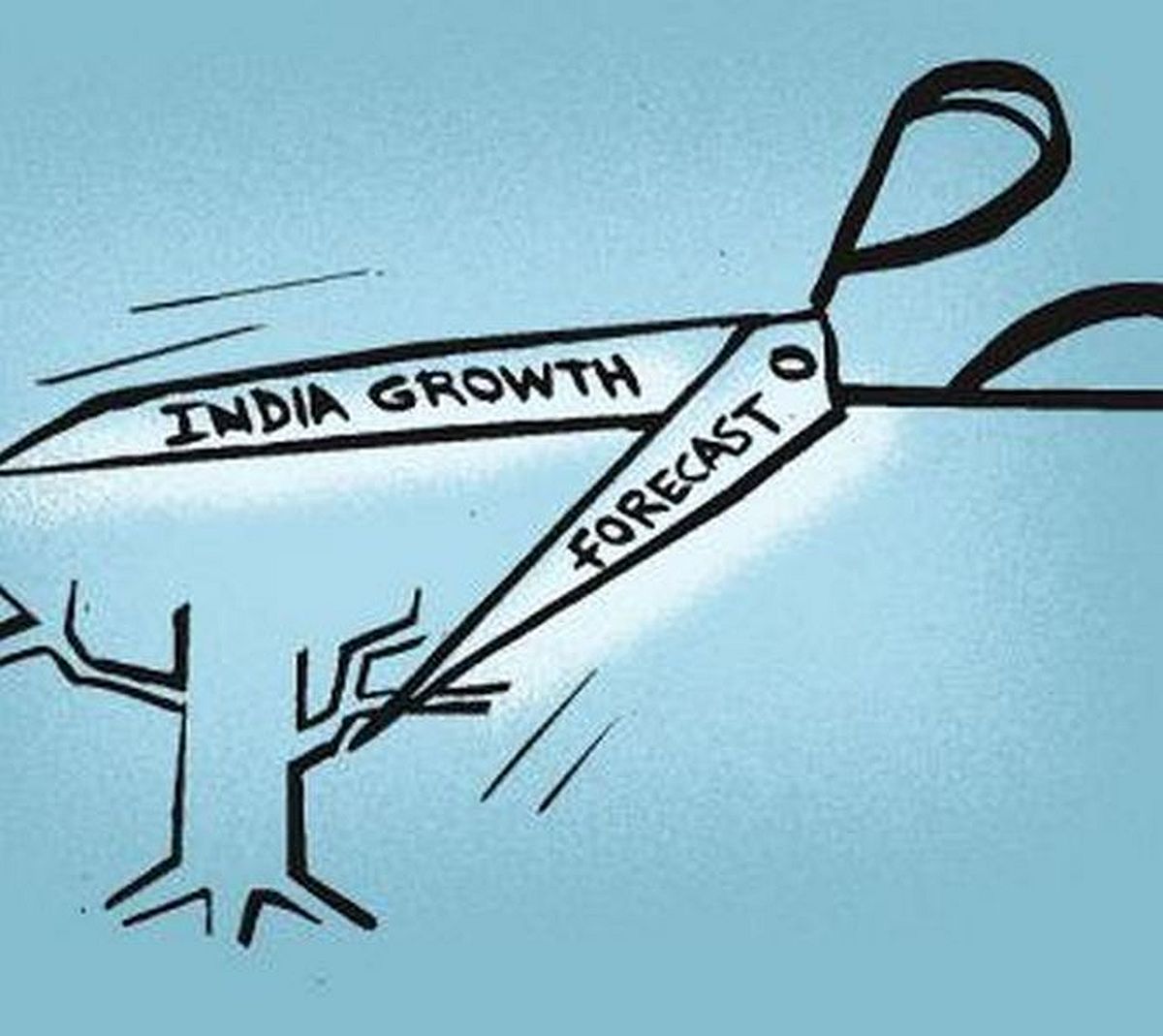India’s 2022 GDP growth downgraded to 4.6%
India’s projected economic growth for 2022 has been downgraded by over two per cent to 4.6% by the United Nations, a decrease attributed to the ongoing war in Ukraine, with New Delhi expected to face restraints on energy access and prices, reflexes from trade sanctions, food inflation, tightening policies and financial instability, according to a UN report released on Thursday.
The UN Conference on Trade and Development (UNCTAD) report downgraded its global economic growth projection for 2022 to 2.6 per cent from 3.6 per cent due to shocks from the Ukraine war and changes in macroeconomic policies that put developing countries particularly at risk.
The report said while Russia will experience a deep recession this year, significant slowdowns in growth are expected in parts of Western Europe and Central, South and South-East Asia.
India was forecast to grow at 6.7 per cent in 2022 and this projection has been downgraded to 4.6 per cent by UNCTAD.
The report said as some of the other economies in South and Western Asia may gain some benefits from fast growth of demand and prices of energy, they will be hampered by the adversities in primary commodity markets, especially food inflation, and will be further hit by inherent financial instabilities.
“India in particular will face restraints on several fronts: energy access and prices, primary commodity bottlenecks, reflexes from trade sanctions, food inflation, tightening policies and financial instability,” it said.
The report has downgraded the GDP growth of the US from three per cent to 2.4 per cent.
China will also see growth decrease to 4.8 per cent from 5.7 per cent.
The report projects a deep recession for Russia, with growth decelerating from 2.3 per cent to -7.3 per cent.
The report said the Russian economy faces stringent external constraints imposed by the sanctions.
While Russia is still exporting oil and gas, and will therefore see compensating increases of revenue due to high prices, sanctions severely limit the use of foreign exchange earnings for the purchase of imports or debt servicing.
Russia will experience severe shortages of a wide range of imported goods, high inflation and a substantially devalued currency.
While the state will likely act to cushion the shock and limit unemployment and the fall of household incomes, its capacity is limited.
“Trade with China and some other partners will continue, but they will not be able to provide substitutes for the wide range of imported goods that the Russian Federation currently cannot access.
“Assuming the sanctions remain in place through 2022, even if the fighting in Ukraine ends, Russia will experience a severe recession,” it said.
The report noted that a number of developing country central banks also engaged in quantitative easing: active purchasing of bonds in the open market.
A small number of developing country central banks engaged in private sector bond purchases, but public bond buying was more widespread: the central banks of India, Thailand, Colombia and South Africa, among others, engaged in public bond purchases.
In the global monetary hierarchy, the place of a national currency today is determined less by the size of its domestic production base than by the size of its domestic financial sector.
The currencies of Brazil, Russia, India and China account for no more than 3.5% of the $6.6 trillion daily turnover in the forex markets, a ratio barely one-tenth of the United States dollar’s 44%, it said.
UNCTAD said the ongoing war in Ukraine is likely to reinforce the monetary tightening trend in advanced countries following similar moves that began in late 2021 in several developing countries due to inflationary pressures, with expenditure cuts also anticipated in upcoming budgets.
UNCTAD is worried that a combination of weakening global demand, insufficient policy coordination at the international level and elevated debt levels from the pandemic, will generate financial shockwaves that can push some developing countries into a downward spiral of insolvency, recession and arrested development.
“The economic effects of the Ukraine war will compound the ongoing economic slowdown globally and weaken the recovery from the COVID-19 pandemic,” UNCTAD Secretary-General Rebeca Grynspan said.
“Many developing countries have struggled to gain economic traction coming out of the Covid-19 recession and are now facing strong headwinds from the war. Whether this leads to unrest or not, a profound social anxiety is already spreading.”
Even without lasting financial market disruptions, developing economies will face severe constraints on growth.
During the pandemic, their public and private debt stocks have increased.
And issues that receded from view during the pandemic, including high corporate leverage and rising household debt in middle-income developing countries, will resurface as policy tightens.
The war has put further upward pressure on international prices of energy and primary commodities, stretching household budgets and adding to production costs, while disruptions to trade and the effects of sanctions are likely to have a chilling effect on long-term investment.
Coming just as pandemic-induced disruptions seemed to subside, the geopolitical crisis has dealt a blow to confidence domestically.
“The added pressure of price increases is intensifying calls for a policy response in advanced economies, including on the fiscal front, threatening a sharper than expected slowdown in growth,” the UNCTAD report said.
Soaring food and fuel prices will have an immediate effect on the most vulnerable in developing countries, resulting in hunger and hardship for households who spend the highest share of their income on food.
But the loss of purchasing power and real spending will ultimately be felt by everyone.
“The danger for many of the developing countries that are heavily reliant on food and fuel imports is more profound as higher prices threaten livelihoods, discourage investment and raise the spectre of widening trade deficits,” the report said.
For all the latest business News Click Here

